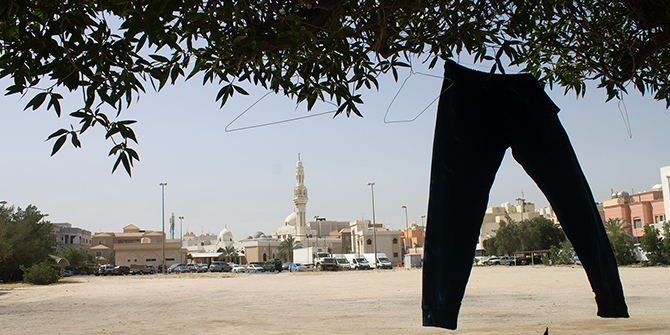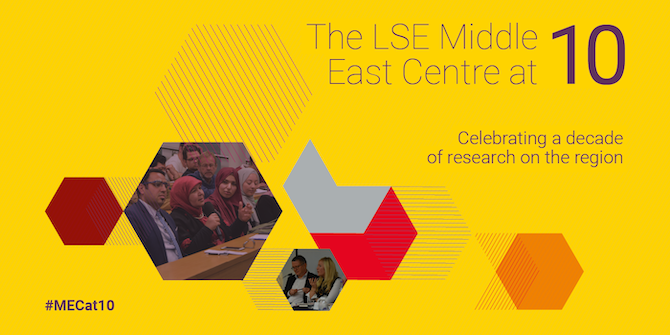by Courtney Freer

The Al-Ula Summit, held on 5 January 2021, marked the formal end of the diplomatic rupture between Qatar and its neighbours Bahrain, Saudi Arabia, and the UAE, alongside Egypt, which had been in place since 5 June 2017. Since January, trade and travel links have restarted, and meetings among the political leaderships have resumed. Qatar also agreed to rescind its lawsuits against the quartet at the World Trade Organization, and all parties decided to stop using negative media coverage.
In March, officials from Qatar and the UAE met in Kuwait for the first time since 2017. The Emirati state news agency reported that the delegations ‘discussed joint mechanisms and procedures for implementing the Al-Ula Statement,’ as well as ‘emphasized the importance of preserving Gulf kinship and developing joint Gulf action in the interest of GCC countries and their citizens, and of achieving stability and prosperity in the region.’ The Saudi foreign minister visited Qatar the same month. Following his meeting with the Qatari Amir Shaykh Tamim bin Hamad al-Thani, a statement confirmed that both sides ‘rejected any threat to the security and stability of the region and the world.’ Diplomatic links appear to have largely been restored, although it is unclear whether the Al-Ula Summit, and meetings since it, have addressed issues which were at the core of the crisis.
The final communique from the Al-Ula Summit indeed recognises one goal as enhancing regional coordination, including ‘a unified foreign policy.’ This language is striking and surprising, given that the diplomatic rifts isolating Qatar, both in 2014 and in 2017, were spurred by disagreements about foreign policy priorities, particularly when it comes to two key regional actors: Sunni Islamists and Iran. So where does an (at least notionally) unified GCC leave Iran, especially as these states now seem to be divided about normalisation with Israel as well? And, by extension, what does a post-blockade GCC mean for Russia and its ties to states in the region?
The answer depends first and foremost on the extent to which the GCC follows up rhetoric with action towards enhancing regional cooperation. At present, there is still a great deal of distrust among the GCC states, despite the great progress that has been made since January. The very public nature of the blockade, as well as the fact that it lasted nearly four years, allowed time for battle lines to be clearly drawn and defended in local media and by government spokespeople. The fact that such a rupture could happen, even when a regional superstructure like the GCC exists, has also raised major concerns about both the body’s efficacy in maintaining peace and stability, and the level of trust among its member states and its leaderships. That said, in my view, it is plausible that the GCC could come to cooperate on areas of common interest, one of which is arguably some type of reformulation of the Joint Comprehensive Plan of Action (JCPOA). Indeed, it is in none of the GCC states’ interests for Iran to gain access to nuclear weapons. Further, the GCC states, barring Oman – the only one involved in JCPOA negotiations – felt blindsided and alienated in the development of the JCPOA and could potentially demand a role in any new negotiations. They would not necessarily accept the same conditions, however, given their differing views of Iran.
Qatar, in my view, is unlikely to forget that Iran came to its aid when its neighbours isolated it. In fact, Qatar’s foreign minister stated one day after the Al-Ula accord that the country would not change its ties with Iran. Indeed, one reason for the blockade was Qatar’s relations with Iran, with demands released in July 2017 involving Qatar ending its relationship with Iran. Out of necessity, however, Qatar came to rely more heavily on Iran and Turkey for trade and air space, with Iran having sent food to Doha after the blockade. Qatar also shares the South Pars gas field with Iran, something it does not share with GCC neighbours. Qatar will therefore need to continue working with Iran, at least to some economic extent.
Qatar could therefore be an important interlocutor for Iran, particularly with Saudi Arabia and Bahrain who appear the most reticent about engaging with Iran at present. Notably, Qatar has defended Iran even before the blockade: Doha initially supported the JCPOA in 2015 and in 2006 voted in the UN Security Council against sanctioning Iran due to its nuclear programme; the previous amir Shaykh Hamad bin Khalifa al-Thani was said to have tried to temper American positions toward Iran as early as 1997. Qatar is therefore in a unique position due to its strong ties with both the US and Iran. That said, last month’s attempted attacks on Saudi oil facilities by Iran-backed Houthis will only increase bellicosity.
It is also worth noting that the calculus is different for the GCC states in a post-Trump era. The Biden Administration has voiced its desire to resurrect the JCPOA in some form. It has also reshaped its relationship with Saudi Arabia most notably out of all the GCC states, which Biden famously called ‘a pariah.’ The Biden Administration has ended its military support for the Saudi-led war in Yemen and has declassified intelligence documents linking Saudi leadership to Jamal Khashoggi’s 2018 killing; it also placed 76 Saudi individuals on travel bans to the US, and sanctioned individuals including a senior Saudi intelligence official and others linked to the crown prince. This is a far cry from the relationship with the US under Trump, with Saudi Crown Prince Shaykh Mohammed bin Salman said to have had a close personal relationship with Jared Kushner. Given its new position out of American favour, Saudi Arabia may choose at least limited engagement with Iran or Israel as a means of gaining leverage with the US. It is uncertain how Russia would respond to such a development.
Throughout the blockade, Russia maintained an official position of neutrality. After the blockade was ended in January, Chairman of the Russian State Duma’s Foreign Affairs Committee Leonid Slutsky welcomed the Al-Ula summit, stating that it ‘will directly reflect on the joint interests of regional states, and Russia itself,’ citing Libya, Syria, and Yemen in particular. On Syria, he stated that ‘the Al-Ula summit removed the principal obstacle hindering the implementation of the Russian initiative, which aims to enhance security in this strategic region, and to find solutions to other crises, particularly the Syrian crisis,’ adding that he hopes the unity will lead the Arab League to reinstate Syria’s membership. It is clear, then, that Russia hopes that a unified GCC will help it achieve its regional goals as a united block.
Despite its diplomatic responses to the blockade and its resolution, Russia maintains a close relationship with Qatar. Indeed, Qatari investments in Russia made it difficult to side against Qatar openly. Further, Russia, as a fellow gas exporter like Qatar and Iran, shares some common interests, operating through the Doha-based Gas Exporting Countries Forum and lobbying with Iran for the creation of a Gas OPEC, a development which Saudi Arabia, the UAE, and the US oppose. There has been more active dialogue between Russia and Qatar than between Russia and Saudi throughout the blockade, perhaps due to the fact that the Qatari position towards Iran is more proximate to Russia’s than to its GCC neighbours.
Saudi Arabia is also an important partner for Russia, particularly when it comes to energy, due to Saudi Arabia’s key role in OPEC. In major regional conflicts, however, the two remain largely opposed, with Russia having voiced concerns in particular about Saudi operations in Yemen and with Saudi criticism of the Russian role in Syria.
Despite the signing of the Al-Ula Accords and restoration of diplomatic ties among the GCC states, which are undoubtedly important developments, the states of the GCC still have fundamentally different threat perceptions when it comes to Iran, Sunni Islamists, and, increasingly since last year, Israel. As a result, they are likely to retain different views towards these actors and different foreign policies, despite their stated commitment to developing a unified foreign policy as of January. With reports of Saudi desire to buy Turkish drones, we could see some thaw on the Sunni Islamist front, although the UAE-Turkish relationship remains one of primarily competition rather than cooperation. When it comes to Israel, Jared Kushner reported a few weeks ago that normalisation between Saudi Arabia and Israel is ‘in sight,’ adding that Oman, Qatar, and Mauritania were likely to follow, but these reports remain unconfirmed. When it comes to Iran, Qatar is the most likely interlocutor who could feasibly play an important role in pushing forward dialogue both with Iran and potentially for Russia’s future place in the region.
This is part of a series on the challenges and opportunities facing the Russian-Iranian partnership in the Middle East, based on contributions from participants in a closed LSE workshop in April 2021. Read the introduction here, and see the other pieces below.
In this series:
- The Russian-Iranian Partnership in the Middle East: Challenges and Opportunities by Ghoncheh Tazmini
- Russia’s Middle East Policy and View of the Post-Cold War Global Order by Viacheslav Morozov
- Drivers of Russia’s Middle East Policy by Diana Galeeva
- Russia and Iran’s Relations in Iraq by Arman Mahmoudian
- Russia and Iran in Syria: Military Allies or Competitive Partners? by Samuel Ramani
- The Post-Blockade Gulf: Prospects for Relations with Iran? The Russian Role by Courtney Freer
- Russia’s Role in Brokering a Comprehensive Agreement between the United States and Iran by Hamidreza Azizi
- Russia and the Issue of a New Security Architecture for the Persian Gulf by Nikolay Kozhanov







1 Comments